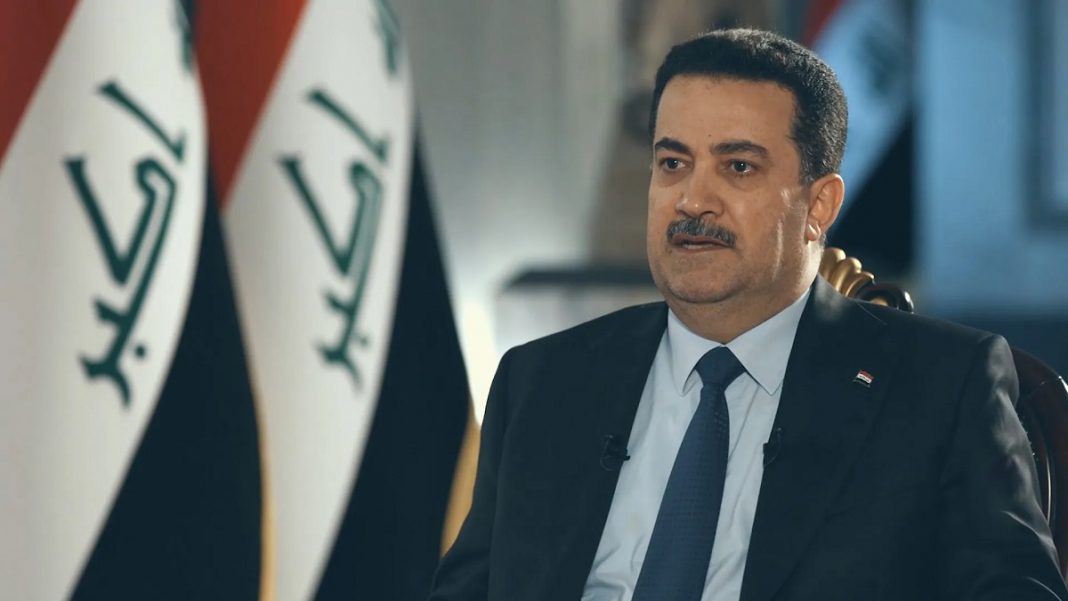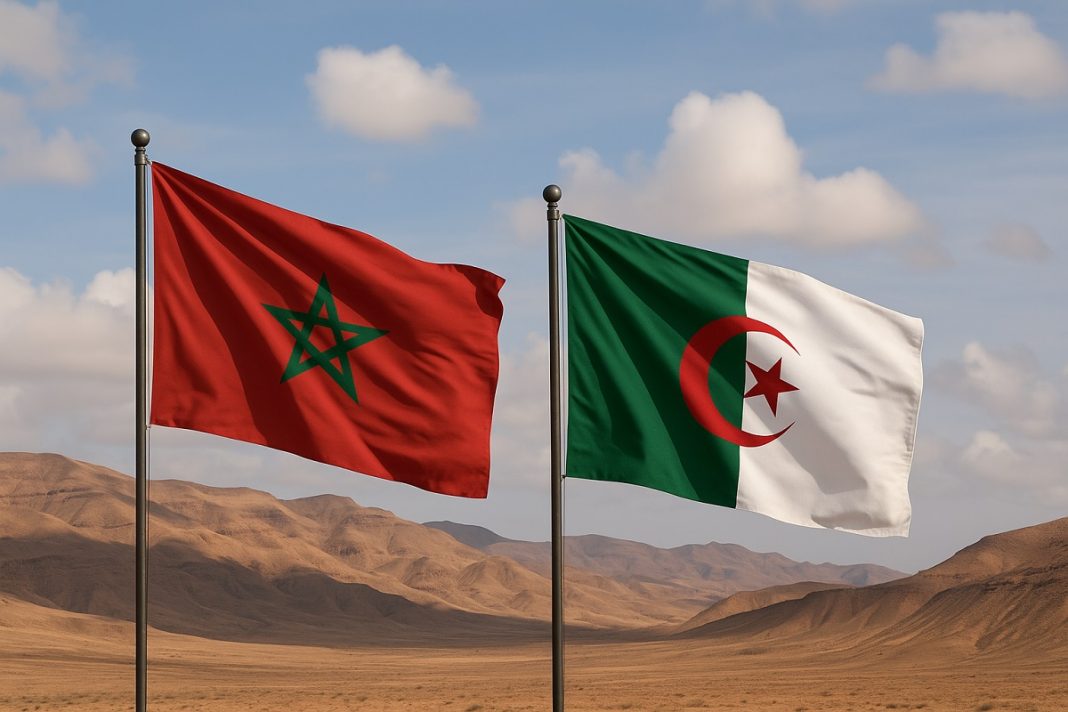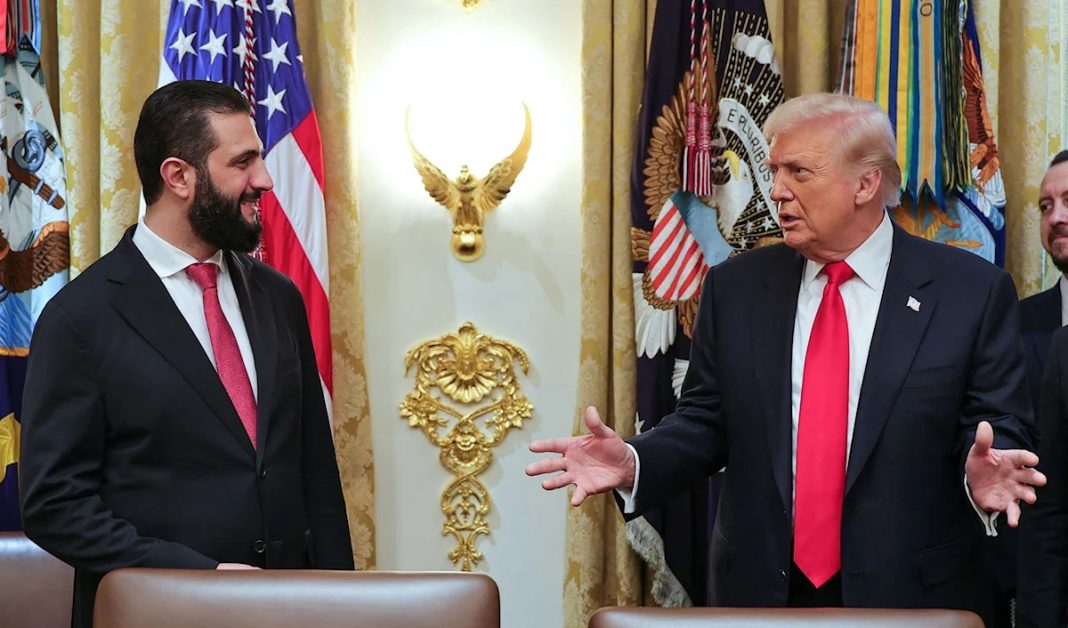Gabriel G Tabarani
Iraq went to the polls on November 11 in what many hoped would be another step toward stability. Instead, the elections served as a reminder that in Iraq, democracy often runs through the barrel of a gun. Behind the campaign billboards and televised debates lies a deeper truth: the men who once fought with rifles now rule with ballots, and the same militias that defended the state have, in many ways, become the state.
Prime Minister Mohammed Shia al-Sudani entered the vote as the favorite. His alliance, the Reconstruction and Development Coalition, has presided over a rare period of calm and a modest construction boom. Even as war rages across the Middle East, Iraq has remained an island of relative quiet — a fragile success in a region consumed by proxy conflict. Yet the foundation of that calm rests on a dangerous compromise: the quiet endurance of the country’s most powerful armed groups.
At the center of that compromise is the Popular Mobilization Forces (PMF), a network of mostly Shiite militias formally integrated into Iraq’s security apparatus but effectively operating as a parallel state. Born out of the fight against ISIS in 2014, the PMF now wields both military and political power, controlling ministries, businesses, and vast patronage networks. Its factions are backed by Tehran, yet deeply embedded in Iraq’s economy and society.
Successive governments, including Sudani’s, have tolerated the PMF as both a security asset and a political necessity. Efforts to rein in its autonomy have been cosmetic at best — a few disciplinary measures here, a reshuffle there. The reality is that the PMF controls too many checkpoints, commands too many guns, and influences too many votes to be sidelined. In the words of one Baghdad strategist, “You can’t build a state without the militias, but you can’t build a state with them either.”
That paradox defines Iraq’s political system: a hybrid democracy where ballots legitimize the power of those who still command armed wings. Integration was supposed to disarm. Instead, it institutionalized. The result is not a post-militia democracy but a “militia democracy” — a system where elections absorb violence rather than end it. The militias don’t overthrow governments anymore; they form them.
The United States continues to view this arrangement with alarm. Washington insists that Iran-backed groups undermine Iraq’s sovereignty and threaten both U.S. personnel and Iraqi civilians. Trump’s newly appointed envoy to Baghdad is expected to press hard for a government less beholden to Tehran’s proxies. Yet American pressure may be too little, too late. The militias have transformed electoral legitimacy into political armor. They are not insurgents now — they are stakeholders.
For Tehran, meanwhile, Iraq has become the last stronghold in a region where its network of proxies has been badly battered. Hezbollah’s leadership in Lebanon has been decimated, the Assad regime in Syria has fallen, and Yemen’s Houthis are under siege. The PMF remains the most intact limb of what was once Iran’s regional axis. But that survival has come at a price: it must now exercise restraint. When Israel and Iran went to war in June, the PMF stayed quiet, a calculated silence that reflected its new role — both as Iran’s lifeline and Iraq’s liability.
That duality defines Iraq’s delicate geopolitical balance. Sudani’s government has pursued what he calls “constructive neutrality,” maintaining relations with both Washington and Tehran while expanding economic ties with the Gulf and Turkey. His courtship of U.S. oil majors such as Chevron and ExxonMobil was not just about business; it was strategy — a way to anchor American interests in Iraq’s stability. For now, that policy has paid off. But it is a balance built on sand. A shift in Washington or a new round of regional conflict could upend it overnight.
The bigger danger, however, may come from within. Iraqi society is exhausted. Two decades after Saddam Hussein’s fall, the promise of democracy has curdled into cynicism. Corruption, joblessness, and poor services plague a population that is young, restless, and increasingly disengaged. Voter turnout has collapsed from nearly 80 percent in 2005 to barely a third today. The protest movement that once filled Baghdad’s Tahrir Square with calls for reform was met with bullets, many fired by the same militias now contesting the elections.
That crackdown killed more than 500 demonstrators and buried public faith in the system. The Tishreen uprising’s political offshoot, the Imtidad Movement, won a handful of seats in the last parliament but was quickly marginalized. The rules of Iraq’s political game — negotiated among armed blocs and entrenched elites — ensure that reformists play by a system designed to defeat them.
Muqtada al-Sadr, the populist cleric whose movement has dominated past elections, has chosen to boycott this one, condemning what he calls “the corruption of arms.” His absence has left the field open to militia-backed factions. Yet Sadr remains a wildcard. Should coalition talks turn violent — as they did after the 2021 vote — he could mobilize millions overnight. That potential for eruption always lurks beneath Iraq’s political stalemate.
The months after the election may prove more consequential than the vote itself. Forming a government in Iraq is a marathon of horse-trading that can last for months. Each negotiation is an exercise in balancing factions, dividing ministries, and buying loyalties. The danger lies in the gaps between these deals — the moments when talks stall, tempers flare, and militias return to old habits.
Still, Iraq’s power brokers understand the stakes. Another descent into chaos would destroy the fragile prosperity they now enjoy. Oil money is flowing, foreign companies are returning, and the streets of Baghdad — for now — are quiet. Even the PMF, for all its autonomy, seems to recognize that open conflict could invite disaster, including possible Israeli or U.S. strikes on Iraqi soil. That self-preservation instinct may be the country’s best hope.
Iraq’s elections are not simply about who wins the most seats. They are about whether the country can sustain a tenuous peace built on exhaustion rather than reconciliation. The vote offered Iraqis a choice, not between parties, but between two futures: one in which politics remains hostage to the men with guns, and another in which the state, slowly and painfully, begins to reclaim its authority.
The ballots have been cast. The militias still stand. And once again, Iraq finds itself suspended between peace and the threat that sustains it.
This article was originally published in Arabic on the Asswak Al-Arab website


